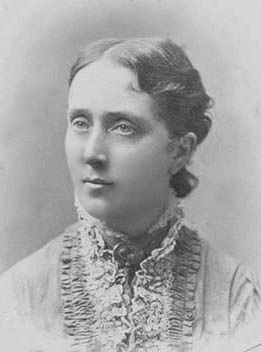Rose Scott facts for kids
Quick facts for kids
Rose Scott
|
|
|---|---|

in about 1883
|
|
| Born | 8 October 1847 Glendon, near Singleton, New South Wales
|
| Died | 20 April 1925 (aged 77) Sydney, New South Wales
|
| Nationality | Australia |
| Known for | founding the Women's Political Education League |
Rose Scott (born October 8, 1847 – died April 20, 1925) was an important Australian activist. She worked hard for women's rights and believed that all women should have the right to vote. She also supported universal suffrage, meaning everyone should have the right to vote, not just men. Rose Scott was active in New South Wales around the early 1900s. In 1902, she started the Women's Political Education League. This group successfully campaigned to raise the age when young people could make important decisions about their lives, especially for their safety and protection.
Early Life of Rose Scott
Rose Scott was one of eight children. Her father was Helenus Scott, and her mother was Sarah Ann Scott. She was also the granddaughter of Helenus Scott, a doctor from Scotland. Her cousins, Harriet Morgan and Helena Scott, were famous naturalists who studied nature.
Rose and her sister Augusta were taught at home. From a young age, Rose noticed unfairness towards women. She learned about strong women in history and stories, like Joan of Arc. She also saw how characters like Katerina in The Taming of the Shrew were treated. These stories made her want to fight for women's equality.
Fighting for Women's Rights
In 1882, Rose Scott started hosting weekly meetings at her home in Sydney. These meetings were called "salons." Many important people came to these gatherings. They included politicians, judges, writers, and people who helped others. Through these meetings, Rose became well-known and respected.
In 1889, she helped create the Women's Literary Society. This group later became the Womanhood Suffrage League of New South Wales in 1891. Speaking at committee meetings helped Rose gain confidence. She eventually became a very good public speaker. In 1892, she even had a public debate with another activist, Eliza Ashton.
After her mother passed away in 1896, Rose had her own home and enough money. This allowed her to focus even more on her work. She became very interested in how women were treated in society. She learned that many young girls worked long hours in shops. Some worked from 8 AM to 9 PM on weekdays, and even until 11 PM on Saturdays.
Rose invited some of these girls to her home on Saturdays. They described their difficult working conditions. Important politicians, like Bernhard Wise and William Holman, met with them. They discussed creating a law to improve these conditions. This led to the early closing act of 1899, which limited working hours.
Rose Scott also pushed for other important changes. She wanted women to be appointed as matrons in police stations. She also wanted women inspectors in factories and shops. She worked to improve conditions for women who were in prison. Many of these ideas were eventually put into action.
In 1902, Rose founded the Women's Political Education League. She was its first president until 1910. The League opened branches across the state. They strongly campaigned for a cause very important to Rose: raising the age at which girls were considered old enough to make certain important decisions, protecting them from harm. This goal was achieved in 1910 with a new law.
Rose was also the president of the Sydney Branch of the Peace Society in 1908. She continued to support other reforms after women gained the right to vote. These included laws about family support and women's legal status.
For many years, Rose Scott was the international secretary for the National Council of Women of Australia in New South Wales. When she retired in 1921, she received a gift of money. She used this money to create a special award for female law students at Sydney University. It is called The Rose Scott Prize for Proficiency at Graduation by a Woman Candidate. Another collection of money paid for her portrait to be painted by John Longstaff. This painting is now in the art gallery in Sydney.
Rose Scott did not support the idea of Federation, which was about Australia becoming one country. She also opposed conscription, which is forcing people to join the army. She was an Anglican Christian and believed in pacifism, meaning she was against war and violence.
Rose Scott passed away from cancer on April 20, 1925, at her home in Woollahra, Sydney.
A street in Canberra, called Rose Scott Circuit, is named in her honor.
Resources
- National Library of Australia. Scott, Rose (1847–1925). The National Library of Australia's Federation Gateway
- State Library of New South Wales. Papers of the Scott family, 1777–1925 (ML MSS 38)
See also
 In Spanish: Rose Scott para niños
In Spanish: Rose Scott para niños
 | Audre Lorde |
 | John Berry Meachum |
 | Ferdinand Lee Barnett |

